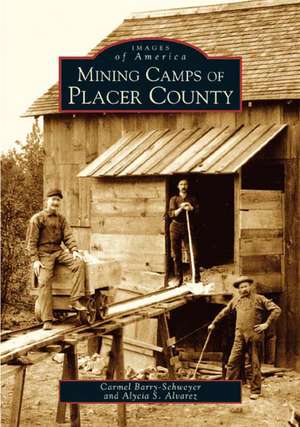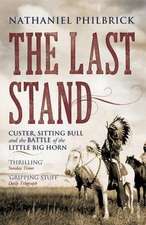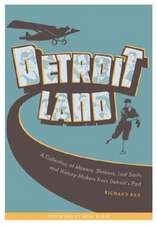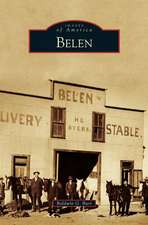Mining Camps of Placer County: Images of America (Arcadia Publishing)
Autor Carmel Barry-Schweyei, Alycia S. Alvaresjen Limba Engleză Paperback – 31 oct 2004
Din seria Images of America (Arcadia Publishing)
-
 Preț: 129.71 lei
Preț: 129.71 lei -
 Preț: 129.71 lei
Preț: 129.71 lei -
 Preț: 130.74 lei
Preț: 130.74 lei -
 Preț: 129.71 lei
Preț: 129.71 lei -
 Preț: 125.22 lei
Preț: 125.22 lei -
 Preț: 130.74 lei
Preț: 130.74 lei -
 Preț: 130.74 lei
Preț: 130.74 lei -
 Preț: 130.92 lei
Preț: 130.92 lei -
 Preț: 132.42 lei
Preț: 132.42 lei -
 Preț: 115.50 lei
Preț: 115.50 lei -
 Preț: 130.97 lei
Preț: 130.97 lei -
 Preț: 129.49 lei
Preț: 129.49 lei -
 Preț: 115.72 lei
Preț: 115.72 lei -
 Preț: 126.07 lei
Preț: 126.07 lei -
 Preț: 131.55 lei
Preț: 131.55 lei -
 Preț: 127.30 lei
Preț: 127.30 lei -
 Preț: 115.72 lei
Preț: 115.72 lei -
 Preț: 131.16 lei
Preț: 131.16 lei -
 Preț: 126.26 lei
Preț: 126.26 lei -
 Preț: 132.42 lei
Preț: 132.42 lei -
 Preț: 130.97 lei
Preț: 130.97 lei -
 Preț: 130.97 lei
Preț: 130.97 lei -
 Preț: 129.71 lei
Preț: 129.71 lei -
 Preț: 126.26 lei
Preț: 126.26 lei -
 Preț: 130.97 lei
Preț: 130.97 lei -
 Preț: 126.26 lei
Preț: 126.26 lei -
 Preț: 131.79 lei
Preț: 131.79 lei -
 Preț: 118.36 lei
Preț: 118.36 lei -
 Preț: 125.22 lei
Preț: 125.22 lei -
 Preț: 126.67 lei
Preț: 126.67 lei -
 Preț: 130.74 lei
Preț: 130.74 lei -
 Preț: 135.25 lei
Preț: 135.25 lei -
 Preț: 132.18 lei
Preț: 132.18 lei -
 Preț: 116.31 lei
Preț: 116.31 lei -
 Preț: 130.97 lei
Preț: 130.97 lei -
 Preț: 132.18 lei
Preț: 132.18 lei -
 Preț: 130.92 lei
Preț: 130.92 lei -
 Preț: 131.15 lei
Preț: 131.15 lei -
 Preț: 131.15 lei
Preț: 131.15 lei -
 Preț: 130.74 lei
Preț: 130.74 lei -
 Preț: 130.97 lei
Preț: 130.97 lei -
 Preț: 130.97 lei
Preț: 130.97 lei -
 Preț: 130.74 lei
Preț: 130.74 lei -
 Preț: 131.15 lei
Preț: 131.15 lei -
 Preț: 130.75 lei
Preț: 130.75 lei -
 Preț: 130.97 lei
Preț: 130.97 lei -
 Preț: 127.08 lei
Preț: 127.08 lei -
 Preț: 129.71 lei
Preț: 129.71 lei -
 Preț: 176.03 lei
Preț: 176.03 lei -
 Preț: 116.13 lei
Preț: 116.13 lei
Preț: 131.16 lei
Nou
Puncte Express: 197
Preț estimativ în valută:
25.11€ • 25.91$ • 20.81£
25.11€ • 25.91$ • 20.81£
Carte indisponibilă temporar
Doresc să fiu notificat când acest titlu va fi disponibil:
Se trimite...
Preluare comenzi: 021 569.72.76
Specificații
ISBN-13: 9780738529509
ISBN-10: 0738529508
Pagini: 128
Dimensiuni: 170 x 237 x 9 mm
Greutate: 0.3 kg
Editura: Arcadia Publishing (SC)
Seria Images of America (Arcadia Publishing)
ISBN-10: 0738529508
Pagini: 128
Dimensiuni: 170 x 237 x 9 mm
Greutate: 0.3 kg
Editura: Arcadia Publishing (SC)
Seria Images of America (Arcadia Publishing)
Descriere
Everything in Placer County history leads to gold, from its name--the Spanish term for gold-bearing gravel--to the mining camps that sprouted overnight in its rugged river canyons. Ecstatic cries of "Gold on the American River!" in 1848 launched the largest voluntary migration in the history of the world. As claims "panned out," thousands of miners swarmed like locusts between the rough-and-tumble mining camps, from the crest of the Sierra Nevada to the Sacramento Valley. Some camps disappeared along with the easy placer gold; others found new methods to extract gold deposited deep in quartz veins or underground and developed into stable towns that still stand. Sometimes washing whole hillsides into rivers, hydraulic mining was outlawed in the 1880s, but the colorful characters and tall tales of the Gold Rush live on.
Notă biografică
Co-authors Carmel Barry-Schweyer, archivist and historian, and Alycia S. Alvarez, museum curator, have mined these images from the vast photographic collection of the Placer County Department of Museums to portray this most colorful era in California's history.













